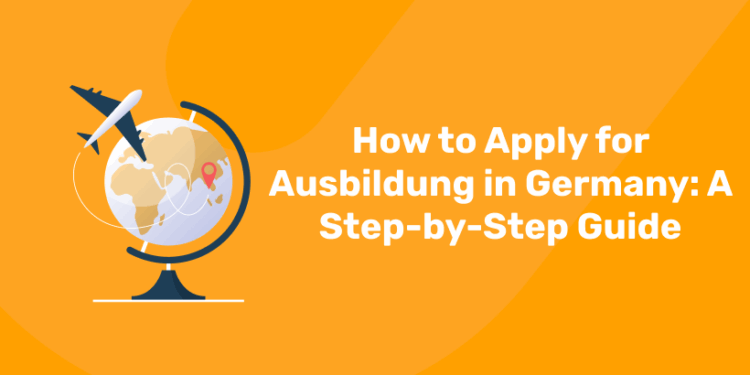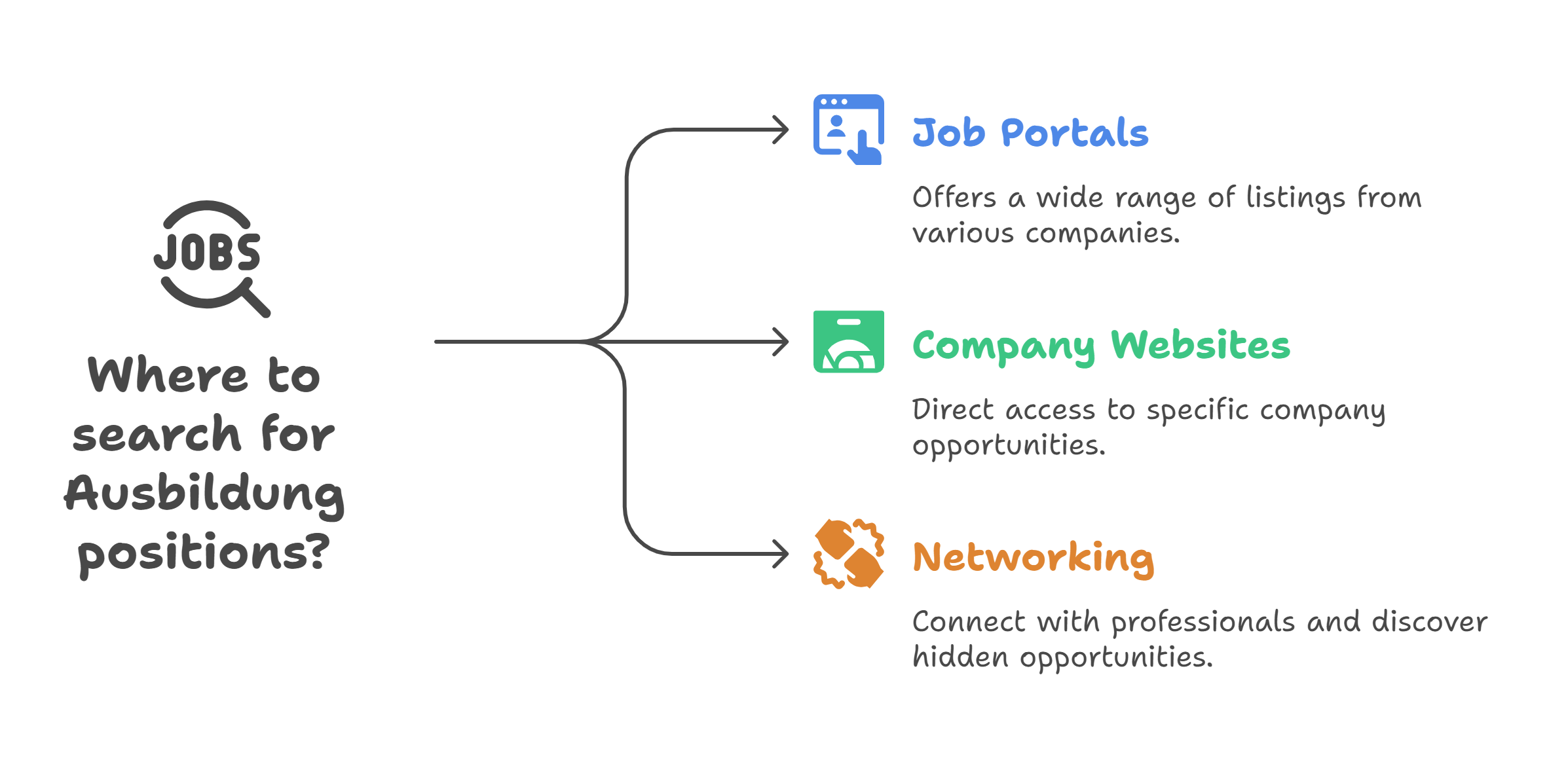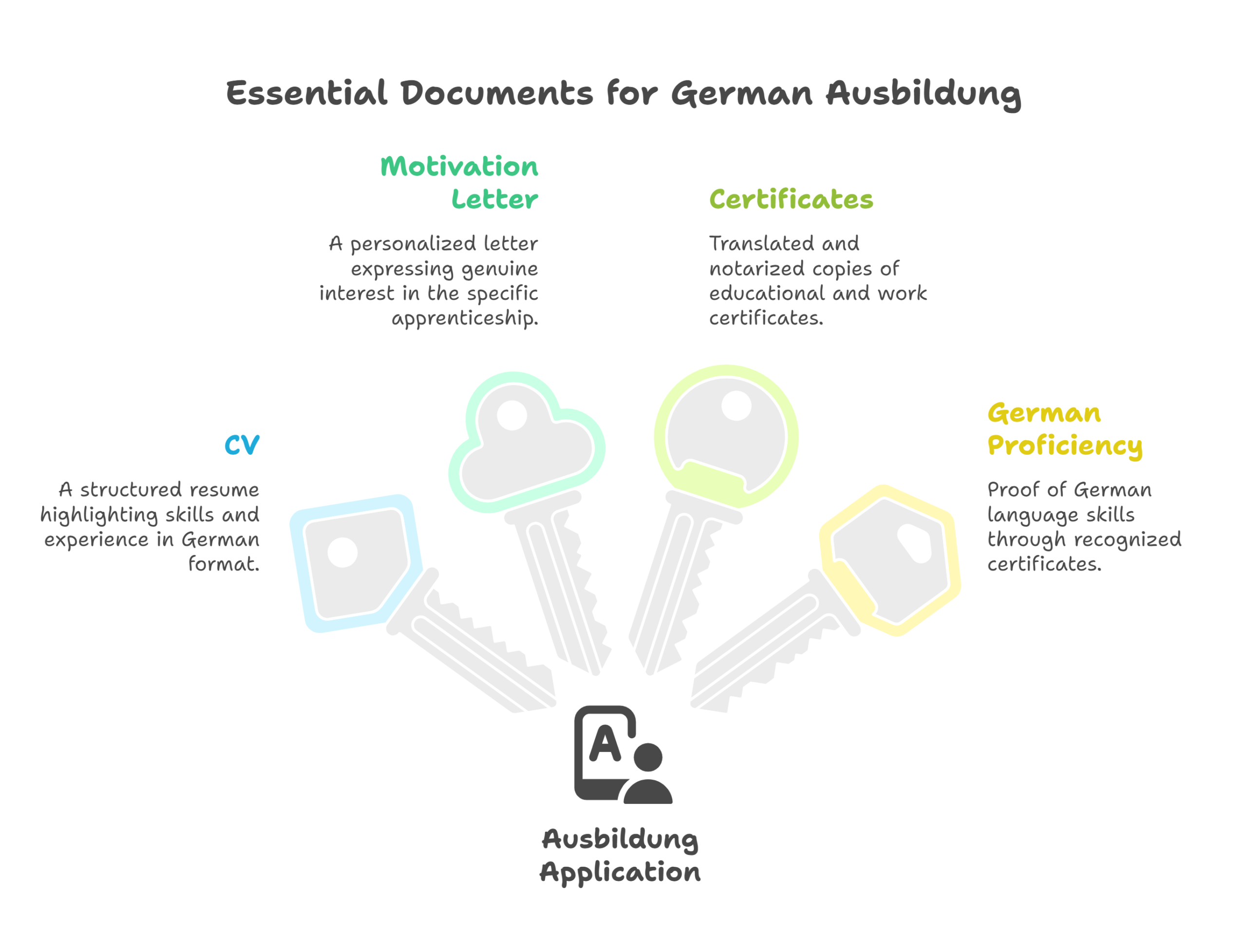Table of Contents
Free German A1 Mock Tests – Powered by AI!
Test your skills on our interactive platform. Get instant feedback from our AI to help you communicate better and track your progress. Start your free German mock test now.
Test Your German A1 for FreeFrequently Asked Questions
What is Ausbildung, and how is it different from a university degree?
Ausbildung is a vocational training program that combines classroom learning with hands-on work experience. Unlike a university degree, which is more theory-based, Ausbildung focuses on practical skills in a specific trade or profession such as nursing, IT, hospitality, or mechanics. It usually lasts between two to three and a half years and includes both schooling at a vocational school (Berufsschule) and paid on-the-job training. Ausbildung is more suitable for those who want to enter the job market quickly with industry-ready skills. It is a respected qualification in Germany and often leads to long-term employment or permanent residency.
Can international students apply for Ausbildung programs in Germany?
Yes, international students from outside the EU/EEA can apply for Ausbildung programs in Germany. However, they need to meet certain eligibility criteria including having a school-leaving certificate equivalent to 10th or 12th grade, German language skills (at least B1 level), and the ability to secure a visa. Non-EU applicants must also show proof of financial stability, typically by opening a blocked account and obtaining health insurance. It’s essential to research which fields and companies are open to hiring international trainees, as not all employers accept applicants from abroad. A well-prepared application and strong motivation letter can improve your chances significantly.
What is the minimum German language level required for Ausbildung?
The minimum required level is usually B1 on the Common European Framework of Reference for Languages (CEFR). However, some fields such as healthcare, elderly care, or public services may require a B2 level due to the need for advanced communication with patients or clients. It’s recommended to take language certification exams like the Goethe-Zertifikat, Telc, or ÖSD, as these are widely accepted by German employers and visa authorities. Strong language skills not only help you get selected but also support you in adjusting to work, school, and everyday life in Germany. Continued language learning during Ausbildung is also encouraged for long-term integration.
How do I find Ausbildung positions from my home country?
You can find Ausbildung positions through several platforms and methods even while living abroad. Start by visiting official job portals like ausbildung.de or the Federal Employment Agency’s Jobbörse. Many large companies like BMW, Siemens, or Charité hospitals list training openings on their own websites. You can also use LinkedIn, Facebook groups, or attend online career fairs focused on international applicants. It’s advisable to apply to multiple places and track all your applications using a spreadsheet or journal to stay organized and follow up when necessary.
What documents do I need to apply for Ausbildung in Germany?
To apply, you need a German-style CV (Lebenslauf), a tailored motivation letter, school-leaving certificates (translated and notarized), proof of German language proficiency (B1/B2), and a valid passport. Some employers may also request reference letters or internship certificates. All documents must be in German or accompanied by certified translations. It’s helpful to keep both physical and digital copies of your documents, neatly organized and named. Make sure your application is complete, error-free, and specifically tailored for the position you’re applying to.
When should I start applying for Ausbildung programs?
Most Ausbildung programs start in August or September each year, and applications typically open 6 to 12 months in advance. The ideal time to apply is between October and March of the previous year. Applying early gives you more choices and time to complete your visa process. Some programs have rolling admissions, but spaces fill up quickly, especially in high-demand fields like healthcare. Set reminders to track deadlines and keep checking portals regularly for new postings.
What is the interview process like for Ausbildung positions?
The interview may be conducted online or in person, depending on the employer. It usually focuses on your motivation, language skills, and understanding of the field. Common questions include: “Why did you choose this career?”, “How will you manage work and school?”, and “What do you know about our company?”. You may also be asked about your strengths, weaknesses, and previous experiences. It’s important to dress formally, be punctual, and send a polite thank-you email after the interview to show professionalism.
What happens after I get accepted into an Ausbildung program?
Once accepted, you will receive an Ausbildung contract from your employer. Review it carefully—it will mention your stipend, working hours, duration of training, vacation days, and duties. You will then need to start your visa process by preparing documents such as health insurance proof, a blocked account statement, your signed contract, and your language certificate. Schedule a visa appointment at the nearest German embassy or consulate and attend the interview with all required documents. Once the visa is approved, you can book your travel and prepare to begin your program in Germany.
Can I stay in Germany after completing my Ausbildung?
Yes, completing an Ausbildung opens up options for staying in Germany. After finishing the program, you can apply for a residence permit to search for a job related to your training (usually valid for 12 to 18 months). If you get a relevant job, you can then switch to a work visa. After a few years of working, you may qualify for permanent residency, especially if you meet the language and income requirements. Ausbildung is one of the strongest pathways to long-term settlement in Germany for skilled workers.
What support is available for international students during Ausbildung?
There are several support systems available for international Ausbildung trainees. Vocational schools often have counselors or mentors to help with academic challenges. Many cities in Germany have welcome centers, migrant advisory services, and integration courses that offer free advice on housing, health insurance, legal matters, and more. Online platforms like Entri also provide training and guidance, especially for language and application preparation. Peer support groups on social media and apps like Meetup or Tandem can help you build a social network. Taking advantage of these resources makes adapting to life in Germany much easier.














